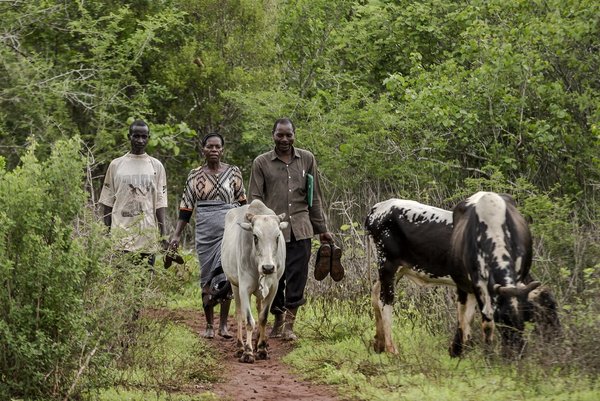 Read this article in French
Read this article in French- Share this article
- Subscribe to our newsletter
COVID-19 threatening efforts to reduce rural poverty
We cannot allow the COVID-19 crisis to undo years of good work in reducing rural poverty, the International Fund for Agricultural Development (IFAD) says in April 2020.
It is not yet clear to what extent COVID-19 will spread to the rural communities of developing countries, where more than three quarters of the world’s poorest people live – but we already know that rural livelihoods are being deeply affected, the organisation states. Whenever crisis strikes, it is invariably the poor and the vulnerable who suffer most. In many cases, they are affected directly by the crisis; in other cases, their lives are made harder by the economic consequences. Often it is both.
The effects that COVID-19 has on people fall into three general categories: economic effects, social effects, and the direct impact of the virus itself, IFAD says. The way these effects are translating into rural contexts needs particular consideration.
Lack of clean water, medicine and health care
In rural communities, access to safe, clean water is often lacking. Rural people, like everyone else, need to be able to wash their hands to protect themselves from the virus. But without clean water, many can’t. And small-scale farmers need to work in accord with the climate – they can’t afford to stay inside. Nor can they afford to stop producing food – the food they grow is needed more than ever.
As another alarming effect is that medicine and health care are less likely to be accessible to rural people who catch the virus. But with COVID-19, anyone who develops serious illness needs treatment within hours.
Farmers suffer from trade and movement restrictions
Restrictions on trade and movement are already making it difficult for small-scale farmers to access markets, both to obtain essential inputs such as seeds and to sell final products. In some places, the lack of seasonal labour will impede production, especially for labour-intensive foods such as fruits and vegetables. In addition, the availability of non-farm work that many rural households rely on to diversify their incomes is likely to shrink, as are incomes from remittances.
IFAD is providing immediate inputs such as seeds and fertilizer and linking farmers to buyers at a time when movement restrictions are closing down some local markets. And it is working with farmers and microfinance providers to provide flexible options that allow farmers to access and repay loans during the crisis. The organisation is also looking at a major initiative to expand our support to digital platforms servicing rural communities at a time when normal access to information is difficult.
(IFAD/ile)
Read more at IFAD website





Add a comment
Be the First to Comment